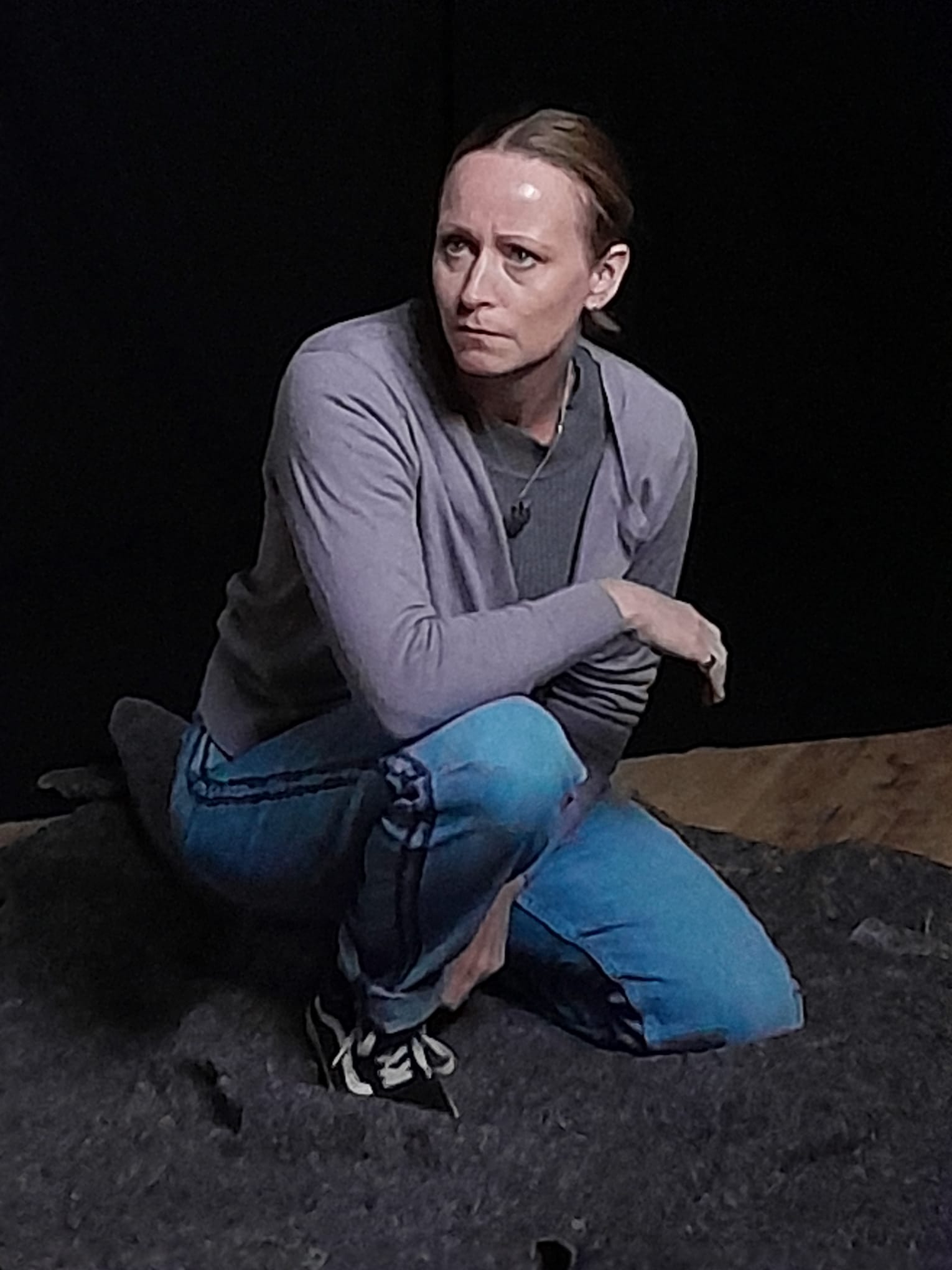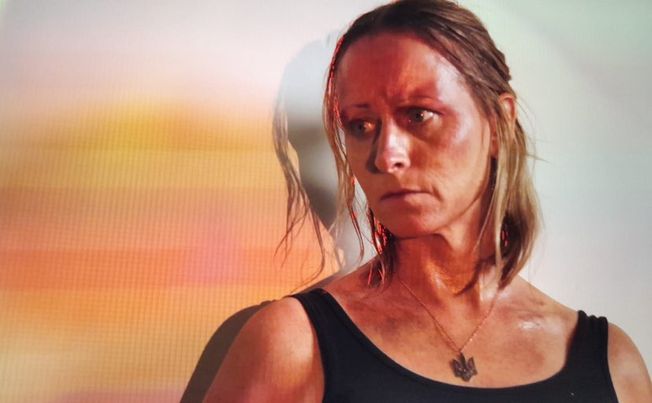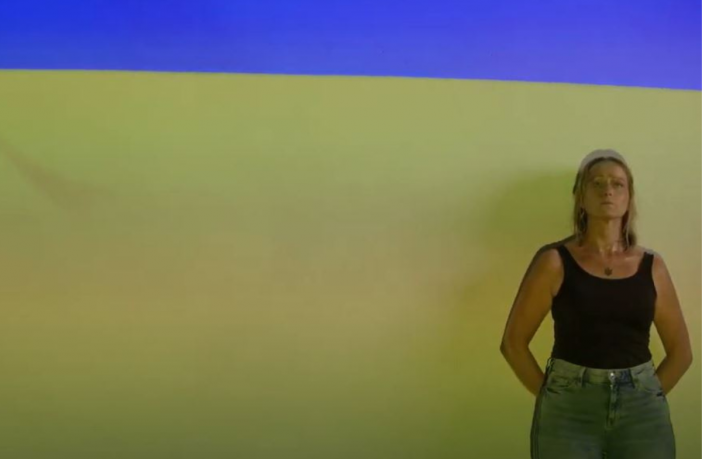Midlands theatre company Here To There Productions are bringing a critically important play looking at the dehumanising impact of war on women to the stage in Birmingham this month. Amy Norbury caught up with the company’s Artistic Director Andrew Whittle to discover more.
Bad Roads is a heart-breaking, powerful, bitterly comic account of what it is to be a woman in wartime Ukraine. Written by Natal’ya Vorozhbit, the leading Ukrainian playwright of her generation, Bad Roads is a response to the 2014 Russian annexation of Crimea. Natal’ya was living in Kyiv, Ukraine when Russian bombs began to fall in February 2022, forcing her to flee her home with just her daughter, her cat and her car.
Here To There Productions are thrilled to be the first UK theatre company to bring this critically important play to the stage since its première at The Royal Court in 2017.
Where did you first come across Bad Roads?
I first came across the play when I read a review in The Times. I have had business interests with a couple of companies in Ukraine and it is a country that I have visited more than any other and have become fond of the people. Before Covid, I made regular trips to Ukraine for about 15 years, so I was very conscious of the annexation of the Crimea and the conflict in the Donbas region. I saw the positive reviews about the play and went to see it at The Royal Court in 2017.
It seems to be quite a passion project for you as a producer – what about the play made you want to tell the story?
Knowing Ukraine as well as I do and having developed several good friends and acquaintances, I always felt puzzled, and I have to say a little angry, that this country and other members of NATO were reacting so passively to what was a war going on in the Donbas region. I thought, “How can it be that there is a war taking place in Europe and we are all taking a back seat and not doing our best to help bring about a peaceful solution?” Obviously, the attitude of this Government and NATO changed when there was a full-blown invasion in February last year but originally, I wanted people to know what was happening, not in the Middle East or Africa, but in Europe.
The production has – understandably – been delayed for several years; how does it feel to finally be bringing Bad Roads to the stage?
Initially it felt wrong to be thinking about presenting this play last year after the invasion, I thought that it would feel like we were jumping on a ‘bandwagon’ with the invasion being the key news item for about three months but inevitably with the passage of time, we become used to living with the idea that there is this war and because it is happening every day, other events, primarily of a domestic nature, take centre stage and this gets put to the back of our minds. Now seems the right time to bring home to people just what is happening in Ukraine and how dehumanising it all is.

Bad Roads
At the current time, on average, more than nine people die every half an hour. Since February of last year, and this is disregarding what has happened between 2014 to 2021, nearly a quarter of a million people have died, mostly on the battlefield. Compare that to some of the other major disasters of the 20th century. 1,500 people lost their lives in the sinking of the Titanic. The Aberfan disaster in 1966 took 144 lives. The Clapham Junction rail crash in 1988 (one of the worst in British railway history) accounted for 35 people. In the same year, a Pan Am flight over Lockerbie killed 270 people. We have just had the 30th anniversary of the Waco siegein Texas in which 86 people died. So, what is happening in Ukraine is that there are 50 Lockerbies a month, two Titanics or 100 Claphams, every week, and more than three Aberfans every day. Or a Waco every four hours. What I would like people to do is see this play and think, “What can we do as a nation, along with all the other members of NATO, to bring peace and end this dreadful conflict”?
It’s such an intense story-what can the audience expect from the play?
Some people might feel very uncomfortable. When I saw it in London a couple of members of the audience did leave; the rest gave it a standing ovation at the end. The play tells the playwright’s own experience of leaving Kyiv and going to the Donbas region with a soldier to see what was happening.Her play was the true account of several women in the region. Their stories show just how dehumanising a vicious war can be, but it also tells of the mechanisms that they have to be able to cope with the conflict and the consequences of it and there is humour amongst the violence, misery and degradation.
The play tells several women’s stories- is there any one which particularly stands out for you?
The stand-out one for me is a young woman who has been captured by a Russian soldier. She has been brutalised by this soldier who is a very intimidating character and her reaction to him looks as if she has moved from appeasement as a hostage to the development of Stockholm Syndrome. However, this particular story ends in a very unexpected way. I will not say more: ‘’no spoilers!’

The intense play is brought to the stage by Here To There Productions
Bad Roads by Natal’ya Vorozhbit is showing at The Blue-Orange Theatre, Birmingham from May 24 to 27. For more details visit www.heretothereproductions.co.uk and book tickets at www.blueorangetheatre.co.uk
Here To There Productions have teamed up with the charity UN Women UK to help raise much-needed funds for the women and girls on the ground in Ukraine today. Find out more about their work at www.unwomenuk.org/ukraine and visit www.justgiving.com/page/heretothereproductions-ukraine to make a donation to the cause.




